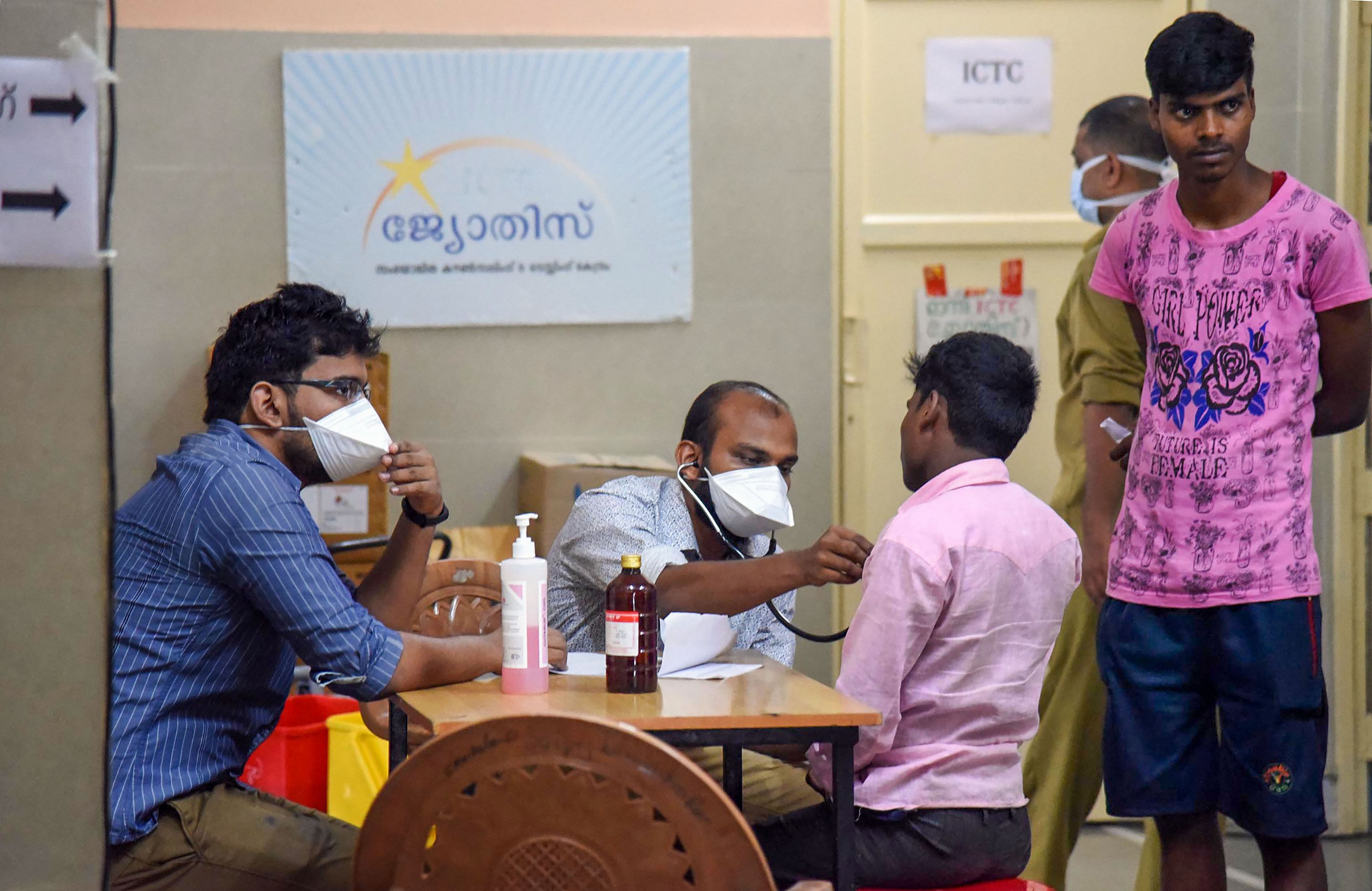
Eight districts in Karnataka and seven in Tamil Nadu are on Nipah alert, and many in Bengaluru are wondering if it is safe to travel to Kerala, where the deadly disease has broken out.
The Kerala government is struggling to contain the outbreak. Seventeen people have succumbed to Nipah last year, and the government has placed four districts on high alert---Ernakulam, Thrissur, Kollam, and Idukki.
More than the disease, it is fear which is steadily spreading among the people in the three states. WhatsApp messages and posts on social media are routinely spreading fake news. Here are the myths and facts about the disease.
Should Bengalureans be scared?
“There is nothing to worry about Nipah virus attack in Bengaluru. The virus doesn’t spread easily. We have not given a red alert in the eight districts in Karnataka, it is just an advisory because they are located on the border. Those areas have been asked to strengthen their surveillance and watch the population movement,” says Dr Prakash Kumar B G, deputy director, Health and Family Welfare Department.
Should we avoid eating mangoes and jackfruit?
“Usually, infected bats reside on palm trees. In Kerala, toddy is extracted from this tree which can be one of the possible sources for the infection to spread. I don’t think mangoes and jackfruits should be avoided,” says Dr Pratik Patil, consultant, infectious diseases, Fortis Hospital.
What about people travelling from Bengaluru to Kerala and vice versa?
With a large number of Keralites living in Bengaluru, the number of people travelling between the two states is always high.
“First and foremost, people should travel to the red alert districts in Kerala only if it is a dire necessity. Since these areas have been put on high alert, that means there is a risk of contracting infection, even if there are no confirmed cases,” says Dr Vinay D, Infectious Diseases Physician, Apollo Hospitals Bannerghatta Road.
If you do have to travel...
“If you have to travel, better avoid contact or close communication with anyone who has fever, runny nose, cough or breathing difficulty. Also, avoid people who look drowsy and are not verbalising well,” says Dr Vinay.
“Be careful if anyone is coming from the affected areas in Kerala. People who have visited these areas recently also need to be monitored,” says Dr Pratik.
Keep this in mind...
While travelling, wear a mask (simple ones are available everywhere), use a good hand sanitiser and don’t touch surfaces (seats or handlebars) unnecessarily. If you do have to touch these, clean your hands with a good amount of sanitiser immediately. This is not 100 per cent foolproof but should be helpful, says Dr Vinay.
If you feel feverish...
Go to a hospital or health centre immediately. Each district hospital in Karnataka has two isolated beds as a precautionary measure. Hospitals in Bengaluru too have demarcated areas, isolated rooms and beds if any cases are reported. Treatment is symptomatic.
Take these precautions...
- Avoid drinking unboiled water, or using water from the well. Wells are one place where bats usually reside.
- Bats can also be found on palm trees. Avoid drinking toddy.
- Avoid eating bitten fruits. If you are in the affected areas or are travelling there, eat only freshly picked, washed and peeled fruit.
- Pigs are another transmitter of this virus. Avoid close contact with them.
What is the treatment like?
The disease does not have preventive vaccines or medicines.
Who should be careful?
Pig farmers need to take special precautions. The mortality rate is very high among pigs.
If farmers suspect their pigs to be suffering from encephalitis syndrome, a blood sample should be sent for investigation.
Healthcare professionals, especially nursing students travelling to the affected areas, need to be careful. Be aware of the symptoms.
Possible cases should be isolated and protection equipment like masks and gloves should be used all the time. Minimise close contact with the patient.
What you should watch out for
Symptoms are noticed within three to 11 days of contracting the virus. The incubation period is usually five to 14 days.
- High fever
- Headache
- Bodyache
- Encephalitis (severe form inflammation to the brain)
- Disorientation
- Breathing difficulty
- Drowsiness
(As advised by doctors quoted in this story)